Our “interventions” are inspired by Tina M. Campt: “Attending to frequency is, at its core, a practice of attunement—an attunement to waves, rhythms, and cycles of return that create new formations and new points of departure” (A Black Gaze: Artists Changing How We See, 2023). Our distinguished scholars and filmmakers’ Interventions will take fascinating forms from improvisation, performance, presentation of scholarship, personal reflections, film clips, sound clips, stills, multimedia, conversation with other participants and/or the audience, the popular interactive “versus” format where participants take turns playing media, and more. The only limit is their imagination.
The goal is to incite, inspire, and engage the audience to join the organizers and participants—both scholars and filmmakers—in an act of creativity and imagination in response to the films, performances, and theorizations of Afro-Brazilian film, history, and culture. We look forward to collective conversations on contemporary aesthetic practices of the Black diaspora in Africa, the Caribbean, North America, and Europe. Each intervention will last approximately 15–20 minutes. Below you'll find descriptions of our artists' and scholars' interventions.
Intervention Descriptions
Tatiana Carvalho Costa
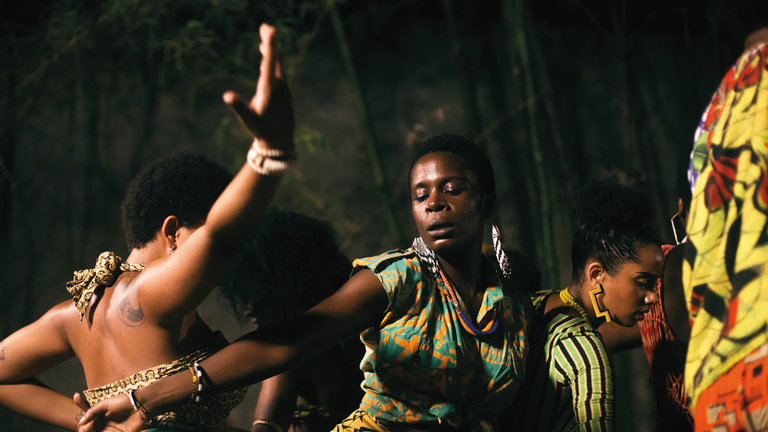
QuilomboCinema: epistemic topographies and a cosmopoetics of scape
This intervention aims to share some insights around the contributions of bantu-brazilian epistemology articulated by black Brazilian feminists to understand the recent phenomenon provoked by the presence of black people changing Brazilian contemporary film culture. The notion of Quilombo plays a central role as an ideological milestone to provide material for “participatory fiction” and to understand the changes on the asthetic-political status of black existence historically and performatively reiterated by Brazilian Cinema's aesthetic captivity.
Friday, March 31, 10:30-11:45 a.m.
UI Stanley Museum of Art
Miryam Charles

For Simone
A moment of silence, then a new start.
Introducing parallel lives in the hope perhaps for a better world.
Across time, across continents.
I return to an island, a country that I never knew.
If only in a dream.
Here.
I present a short filmic essay in which a sound research is combined, towards an impossible destination.
Friday, March 31, 3:00-4:15 p.m.
101 Becker Communication Studies Building
Michael B. Gillespie
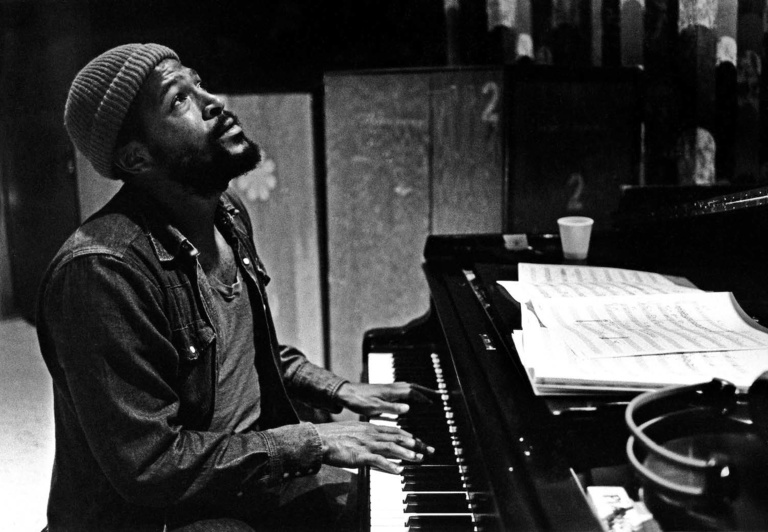
Gillespie's presentation will consider the affective resonance of Marvin Gaye's "If I Should Die Tonight" as a provocation to consider the pleasures and politics that inform the idea of black cinema.
Friday, March 31, 10:30-11:45 a.m.
UI Stanley Museum of Art
Cris Lira
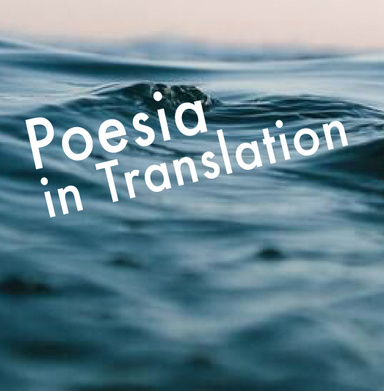
Poesia in Translation
Featuring Cris Lira, Victória Lane Silva, Gleisson Alves Santos, and Kyler Johnson
Taking from Professor Geri Augusto’s article "Language Should Not Keep Us Apart! Reflections towards a Black Transnational Praxis of Translation," this intervention is an invitation to inhabit a world of words, voices, images, and presences created through poetry in translation.
Friday, March 31, 10:30-11:45 a.m.
UI Stanley Museum of Art
Aline Motta
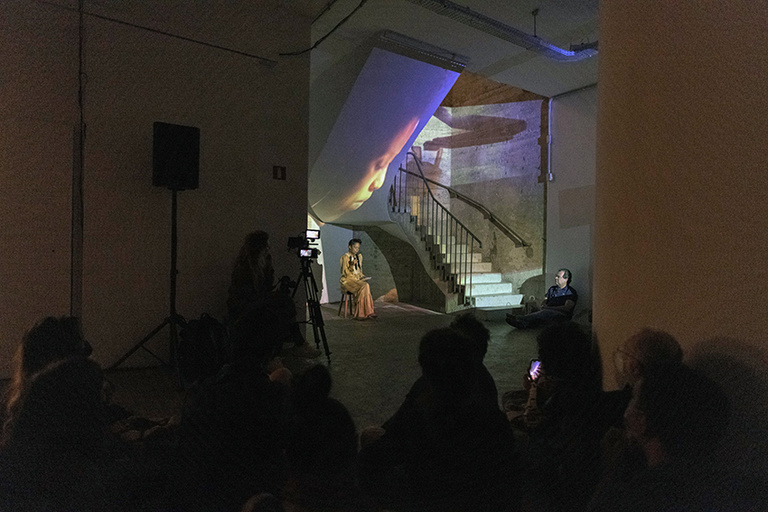
Water is a Time Machine
"Water is a Time Machine" is a multilayered project surrounding the artist’s family members and their lives in Rio de Janeiro at the turn of the twentieth century, a time of political turmoil, which immediately followed the abolition of slavery. It also includes personal documents that belonged to the artist's mother, her calendars and journals from the 70s, and an account of her death in 2011, which is the central piece and backbone of this work. Comprised of a fiction book, a video and a performance, it explores the intersections between literature and the visual arts. Between word and image, archive and fabulation, it reconfigures memories by using a nonlinear perception of time.
Friday, March 31, 3:00-4:15 p.m.
101 Becker Communication Studies Building
Janaína Oliveira
Frequencies of Kalunga
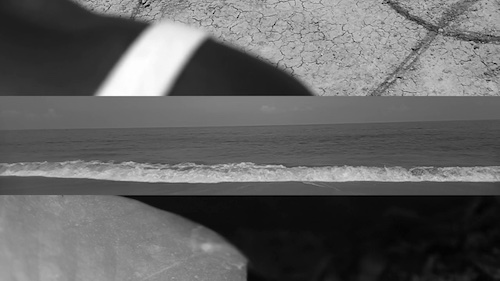
Kalunga: a concept originating from Bantu cultures with multiple meanings. For some, the line that marks the limits between the worlds of the living and the ancestors, the line of the horizon and of saudade (longing), which divides but also aggregates. It can also be a portal or the core of the vital energy of change, the "force in motion,” to quote the Brazilian musician and scholar Tiganá Santana. In the intervention Frequencies of Kalunga, Janaína Oliveira brings together artistic expressions and reflections in the search for ways to think with cinema about relations between the black diasporas and the African continent.
Image: Frame of the visual poem "Dikenga" from the Angolan artists Maria-Gracia Latedjou and Mwana Pwo.
Saturday, April 1, 1:00-2:15 p.m.
FilmScene at the Chauncey (Theater 2)
Yasmina Price
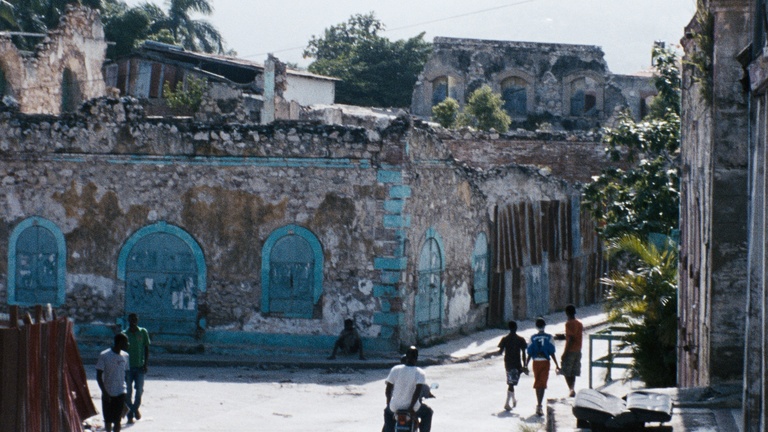
Calling on Toto Bissainthe and Nina Simone, Yasmina Price will present a reflection on Utopian Cinema and the Haitian Revolution, through the errancies of black aesthetics, memorywork and the short film Vole, vole tristesse (2016) by Miryam Charles.
Still: Vole, vole tristesse (2016) by Miryam Charles.
Saturday, April 1, 1:00-2:15 p.m.
FilmScene at the Chauncey (Theater 2)
Cauleen Smith
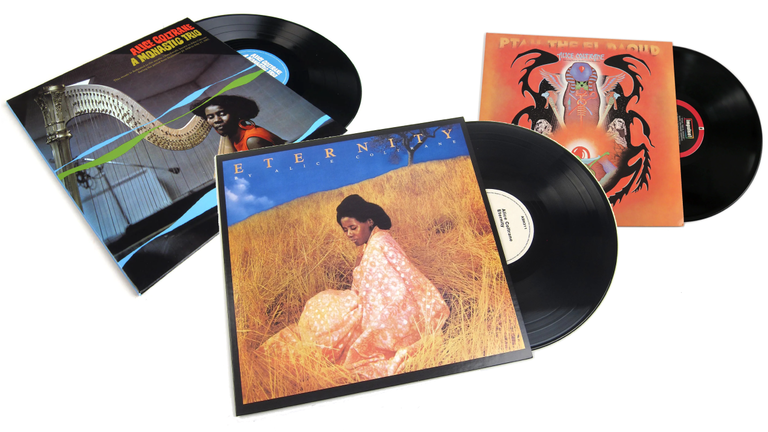
Cauleen Smith will curate an audio experience for listeners.
Saturday, April 1, 1:00-2:15 p.m.
FilmScene at the Chauncey (Theater 2)
Bios
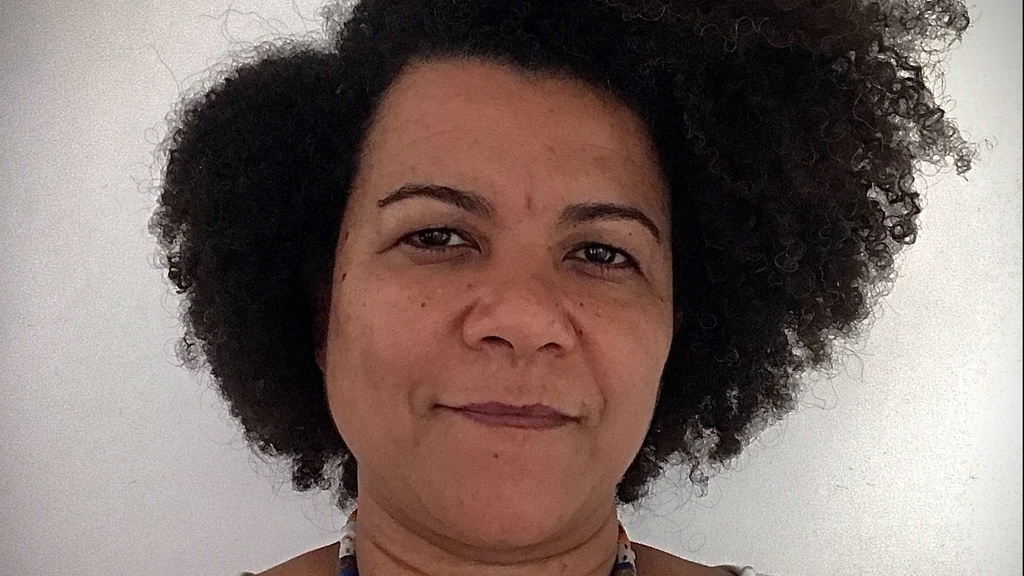
Tatiana Carvalho Costa
Tatiana Carvalho Costa is a curator and teacher. She is a doctoral student at the Federal University of Minas Gerais where she researches Afro-Brazilian epistemologies and Black Brazilian Cinema, in particular the recent production of short films. She works as programmer and juror of festivals and recently joined the curatorial team of the Mostra de Cinema de Tiradentes, the FAN – Festival de Arte Negra de Belo Horizonte, and the Cinema e Narrativas da Diáspora Negra. She is part of the black dramaturgy movement SegundaPRETA and coordinates the university project PRETANÇA – Afrobrasilidades e Direitos Humanos (Human Rights and the Afro-Brazilian question).
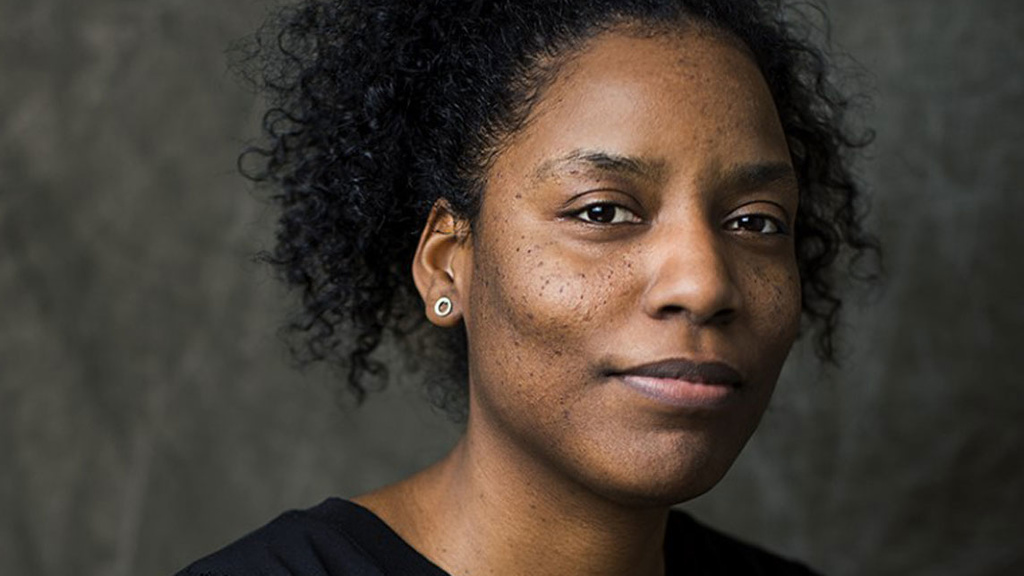
Miryam Charles
Miryam Charles is a Haitian-Canadian director, producer and cinematographer living in Montreal. She has produced several short and feature films. Her films have been presented in various festivals in Quebec and internationally. Her first feature film This House was presented at the Berlinale, the AFI film festival this year and was also included in the TIFF Top 10 of the year. She also launched the short film At Dusk at the Locarno Film Festival. As a producer, she is currently working on the post-production of the series Still I Rise.
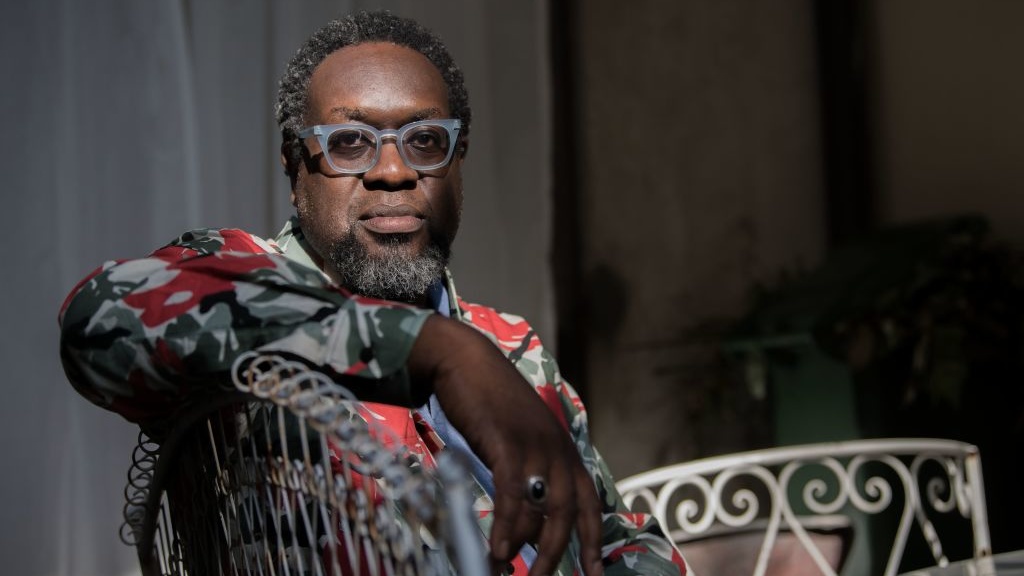
Michael Boyce Gillespie
Michael Boyce Gillespie is Associate Professor of Cinema Studies in the Department of Cinema Studies at New York University. He is author of Film Blackness: American Cinema and the Idea of Black Film (Duke University Press, 2016) and co-editor of Black One Shot, an art criticism series on ASAP/J. His work focuses on black visual and expressive culture, film theory, visual historiography, popular music, and contemporary art. His recent writing has appeared in Regeneration: Black Cinema 1898-1971, Film Quarterly, Film Comment, and liquid blackness. He was the consulting producer on The Criterion Collection releases of Deep Cover and Shaft.
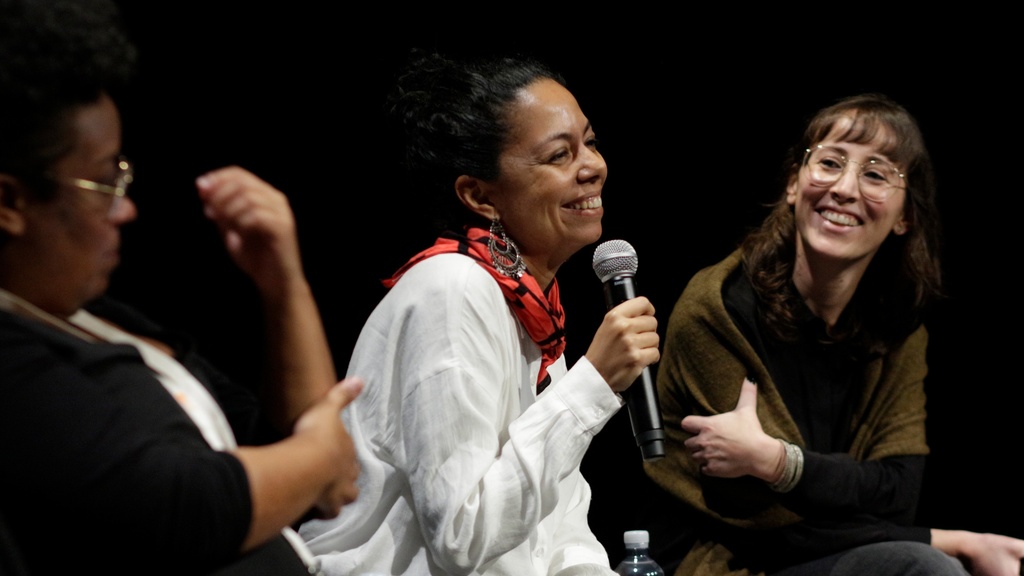
Aline Motta
With her artistic practice, Aline Motta (b. 1974, Niterói, Brazil) seeks to point out and fill in the gaps in her own family history as a result of colonial erasure. Her videos, photographs, installations, and performances are based on speculative studies that mix archival research, field trips, and oral history reports that she uses to access, nourish, and reveal parts of the past that were previously thought to be lost. Refusing the linear organization of time and instead understanding the past as part of the present, Motta creates works that reorient memories and construct new narratives. Reflecting on notions of diaspora, belonging, and identification she reconfigures Afro-Atlantic relations in her own ways, positioning herself as the author of her own history.
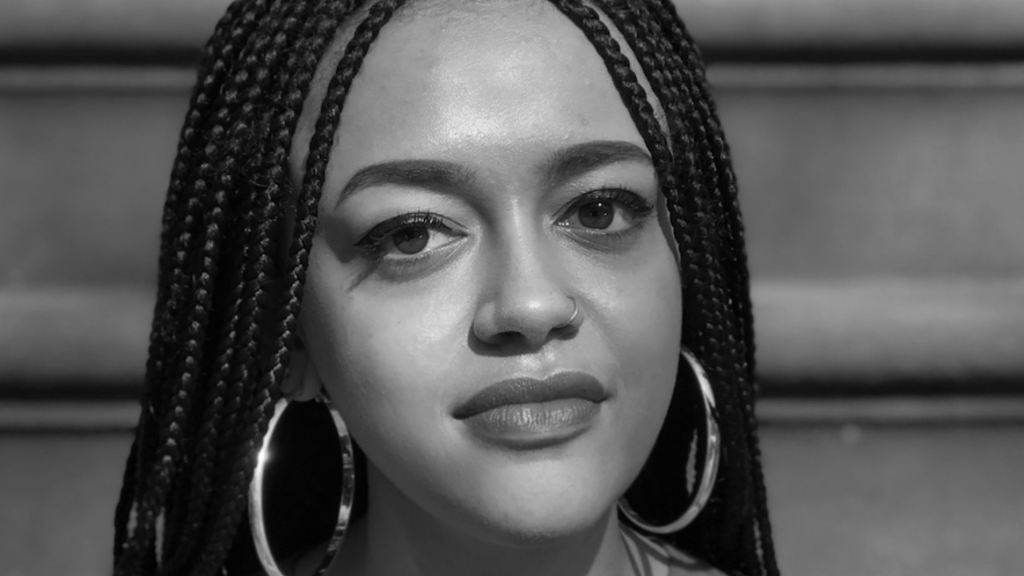
Yasmina Price
Yasmina Price is a writer, programmer, and PhD candidate in the departments of African American Studies and Film and Media Studies at Yale University. She focuses on anticolonial cinema from the Global South and the work of visual artists across the African continent and diaspora, with a particular interest in the experimental work of women filmmakers. Yasmina’s LACMA program “Wayward Waters: Black Cinema and The Atlantic” screened as part of the Pan African Film & Arts Festival, 2023. Recent writing has appeared in Africa Is A Country, Screen Slate, Criterion’s Current and Film Quarterly.

Grace Passô
Grace Passô is a Brazilian actress, director and playwright. Her film acting credits include Temporada and Praça Paris. As a writer, Passô has won the Associação Paulista de Críticos de Arte Award for "Best Playwright.
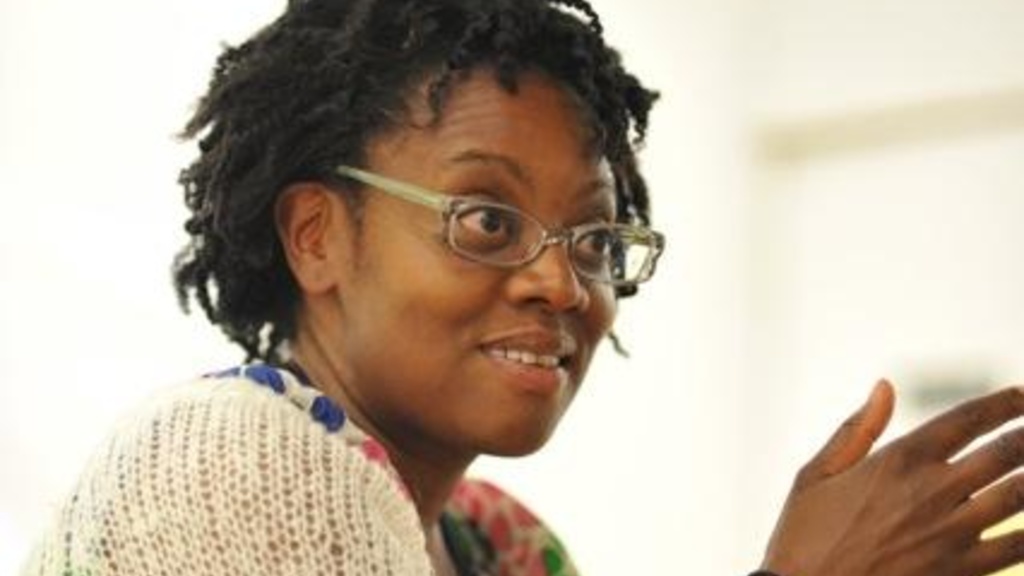
Cauleen Smith
Cauleen Smith, a filmmaker and multimedia artist, describes her work as a reflection on “the everyday possibilities of the imagination.” Smith’s work explores social, cultural, intellectual, artistic, and political liberation in order to conjure what she has called “a cornucopia of future histories.” Operating in multiple materials and arenas, Smith roots her work firmly within the discourse of mid-twentieth-century experimental film. Her images incorporate science fiction, the Black diaspora, and the lyrical potential of landscape. Her work also explores site-specificity and engages in social activism.
She has had solo exhibitions at The Whitney Museum of American Art, MASS MoCA, LACMA, the Art Institute of Chicago, Institute for Contemporary Art Pennsylvania, the Museum of Contemporary Art in Chicago, the Contemporary Arts Museum Houston, and a two person exhibition with Theaster Gates at the San Francisco Museum of Modern Art. Smith’s films, objects, and installations have been featured in group exhibitions including the Whitney Biennial, Prospect 4 New Orleans, Studio Museum Harlem, the Contemporary Art Museum Houston, the New Museum in New York, and BALTIC Center for Contemporary Art in Gateshead, UK.
Smith is the recipient of numerous grants and awards including the Heinz Award for the Arts, the United States Artists Award, the Guggenheim Fellowship, the Joyce Alexander Wein Artist Prize from the Studio Museum in Harlem, the inaugural Ellsworth Kelly Award from the Foundation for Contemporary Art, the Herb Alpert Award for Film/Video, Rockefeller Media Arts Award, Creative Capital Film/Video, Chicago 3Arts Grant, the Foundation for Contemporary Arts, Artadia, a Rauschenberg Residency, and Smith was an artist in residence at Artpace.
Smith was born in Riverside, California and grew up in Sacramento. She holds a bachelor’s in creative arts from San Francisco State University and an MFA from the UCLA School of Theater, Film and Television. She first gained national attention with her feature-length film Drylongso (1998), which she completed during her graduate studies at UCLA. Smith has also been a visiting artist at the School of the Art Institute of Chicago, and a faculty member of California Institute of the Arts and the Vermont College of Fine Arts low-residency MFA program.
